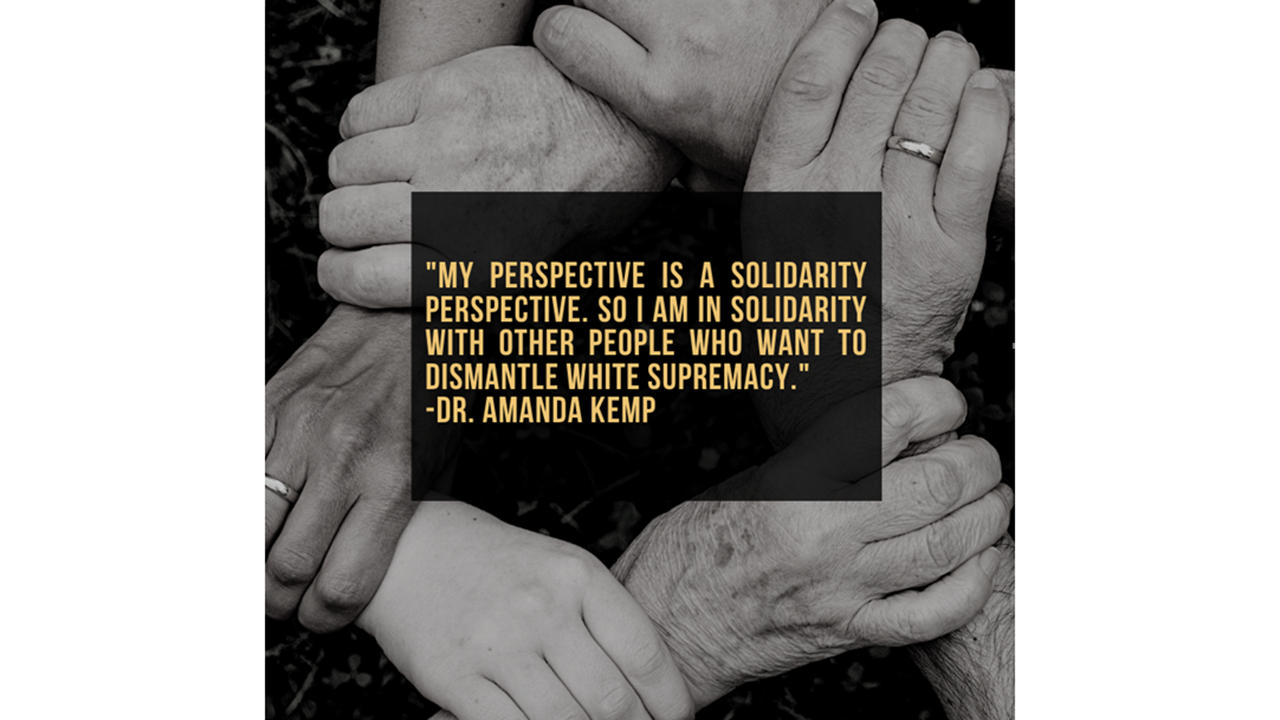BEYOND THE BLACK-WHITE BINARY
Oct 22, 2019
This week I want to start to address how we talk about racism in a multiracial context rather than a black-white binary.
Recently, I got this question from Naomi who attended my Afraid to Say the Wrong Thing? master class. After the master class, we had a live Q&A call. Below you'll find the transcript of my answer during the Q&A call.
If you'd like a structure or some scaffolding to help you navigate your difficult conversations about racism. Please check out the replay here.
It's really great for people who are exhausted from repeating themselves and for people who are not speaking up because they're terrified.
Now for the question...
What do I say to a friend that complains that Black people get all the anti-discrimination attention while her concerns as a Hispanic are ignored? She says that Black Lives Matter leaves her out.
That's a great question. So I want to, um, address that on a couple of levels. One is, I want to say that lot of times we talk about racism in this country in a black-white binary, and that is completely inadequate to what is real and what is happening on the ground and what has happened historically. Look at the annexation of the Southwest and making it illegal to speak Spanish or in the Pacific Northwest where it was illegal for people of Japanese descent to marry with people of European descent,
We know that the system of whiteness, yes created itself in opposition to what was defined as blackness, but also in opposition to what was defined as, um, Savage, Indian, you know, indigenous. So I'm still searching for the right terms. I use people of color because I want to be inclusive, but I feel like that really is inadequate for what I'm trying to communicate. The term I used to like better was third-world people, so people from third world and developing countries, which would include people of African descent, people from Latin America, people from Asia, sovereign nations inside the U S, but there are all the other kinds of problems with that term. So I'm just saying out loud that we definitely live in something more complex than a black, white binary. And we always have.
Number two, I love this book by Ruth King. It's called Minding Race. She's a Black woman Buddhist who does work on racial justice. One of her chapters is on people of color and tensions amongst people of color. One of those tensions is that people of color who are not Black feel silenced or like their experience isn't validated because it hasn't been as extreme as, you know, people of African descent or, organizing around racial justice hasn't been that huge in their community. Or, you know, in the case of some Asian American groups, they've been created it as a model minority, so as a weapon to put down, other Black and brown people.
So it's a complex; it's complex relationships. And inside of that you'll see there's anti-immigrant sentiment inside the African American community. You'll see there's anti-Black sentiment inside the Asian community. I mean, even people who suffer from domination by whiteness, also have internalized some of the values of that and then turn on each other. So I'm not surprised that your friend doesn't feel included by Black Lives Matter. Um, you know, maybe they're, and that doesn't mean her life doesn't matter. Maybe, you know, her liberation isn't going to come behind that. It Is going to come behind something more specifically aligned with her, her own ethnic heritage.
I just want to say out loud and a lot of Latinos are Black or are African descended in addition to being, you know, a Mestizo, indigenous and European. So, and I was telling my friend, uh, Melody who's Puerto Rican something, I was like, "Oh yeah, so and so is an Afro Latina," and Melody goes, "Oh, what is that?" I was like, "ah, I don't know. But what I've heard her say is that she's a Black Puerto Rican." Melody was like, "Oh, but aren't all Puerto Ricans black?" I was like, "I think so." But then we get into all these, you know, people's experiences and how anti-blackness has, you know, manifested in lots of different, um, historical and geographic spaces that have been colonized.
So that's all to say I think people need to advance and fight for their liberation or you know, whatever the verb is. If fight isn't the right word, cultivate, you know, stand for their liberation and look for other people who want to support them in that. And my perspective is a solidarity perspective. So I am in solidarity with other people who want to, um, dismantle white supremacy. Doesn't mean we all have to be the same to do that. So thanks for that question, Naomi.
If you want more information on how to have difficult conversations about racism, please check out this free master class.


